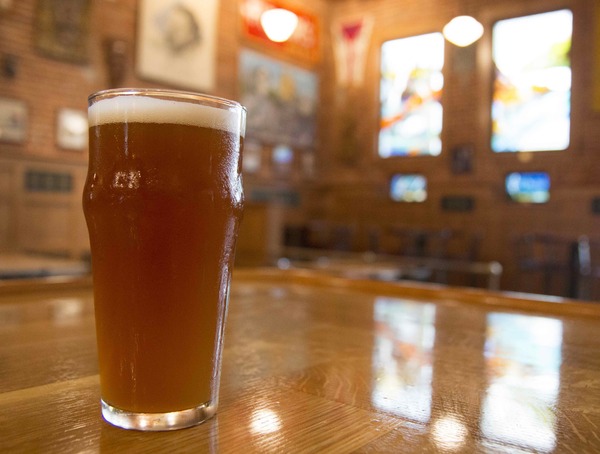Bell's brews first ale in 100-year-old wooden fermenters

Bell’s Brewery is releasing its first beer fermented in 100-year-old wooden cypress tanks that were used by Stroh Brewing Company in Detroit.
Andrews’ Ale is inspired by the traditional English style Extra Special Bitter and uses a semi-retired malt variety, Chevallier, that was popular during the 19th Century in England.
The tanks came to Bell’s from Detroit, where they were sitting in a warehouse for more than 50 years. They were transferred in pieces and reassembled by local carpenters at Bell’s. Each tank is about 12 feet in diameter and stands about 8 feet tall.
Bell’s Director of Operations John Mallett’s idea for Andrews’ Ale was to make a beer with a heritage barley malt. The wooden tanks were used because it was the material used in fermenters when the style was popular.
Chevallier was the primary barley grown in England through the 19th century. By the late 1880s, it made up 80 to 90 percent of all the barley grown there. Today, it has all but disappeared. In 2012, it was grown in small quantities in England where it was malted as a test plot.
Our friends at Brewers Supply Group had some of the malt available this year but in limited supply. Bell’s was one of the few breweries that were offered some to brew with.
The name “Andrews’ Ale” is derived from one of the laborers of the Reverend John Chevallier whose surname was Andrews. In “Malt: A Practical Guide from Field to Brewhouse” Mallet writes that the barley originated from a laborer named Andrews. While walking through a field of barley, Andrews plucked a couple of ears out of the ground. Upon returning to his cottage, he tossed a few kernels into his garden to feed the chickens. The barley grew quite fine and well, so much so that Chevallier decided to try and cultivate it.
The beer is 5% ABV and is toasty, biscuity, with notes of caramel and a grassy hoppy flavor.
Andrews’ Ale is on tap at the Eccentric Café. You can see the wooden tanks from our brewery gallery. See them during public museum hours or during a tour. Learn more about visiting Bell’s.
